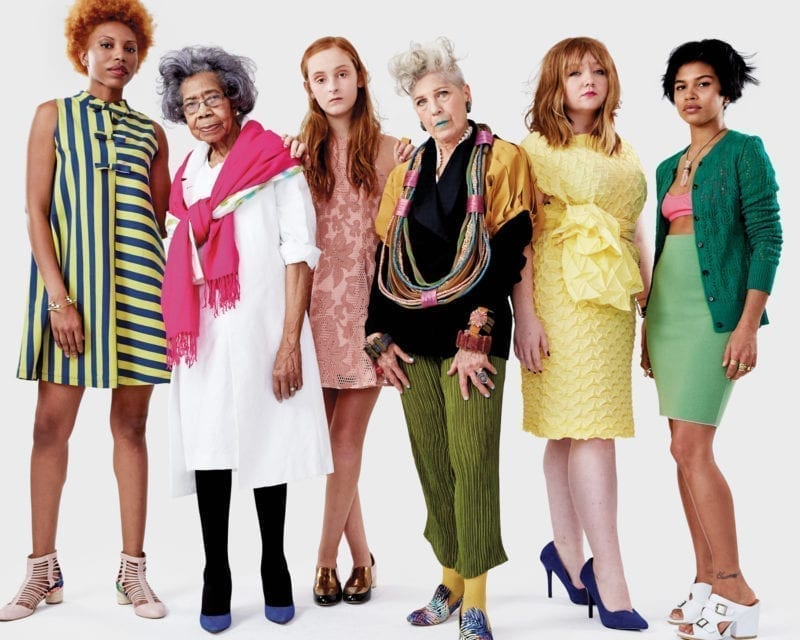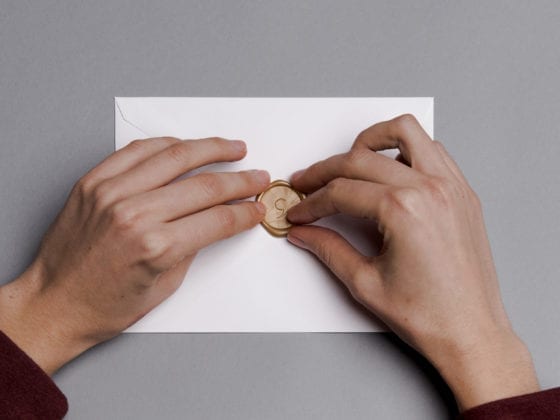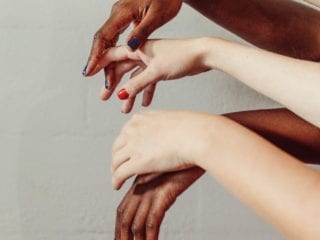Taking orders, making drinks, doing dishes and cleaning up something I likely spilled with schoolwork haunting me in the back of my mind—this was the rhythm of life in my early college years. Most of my evenings were spent closing at Starbucks. At some point, between writing names on cups and stocking caramel bottles, I can’t remember how, but the topic of feminism came up.
My younger self must have remarked something to the effect of, “I just don’t understand why it’s necessary.” One of my supervisors, with whom I was never certain where I stood and had little in common with, sternly but gently asked me questions, the same way she did when she taught me how to properly sweep the floors by getting under the refrigerators.
She returned the next day with a printed stack of articles and simply told me to read. At some point, she came back to me, and she asked, “Do you see why this is important?” I did, and it has stuck with me as permanently as has the way she taught me to sweep under the fridge.
She came back to me, and she asked, “Do you see why this is important?”
Perhaps, if you were like me, the word “feminism” may carry an edge. Seeing as we are currently in a time that is widely considered a fourth wave of western feminism, the word can mean different things to different people. Connotations are embedded in the movement, depending on our experience with it and understanding of it.
Where does that leave now? If you are like my younger self who hadn’t given it much serious thought or research, what is the purpose?
While the movement’s first major victory came with the passing of the 19th Amendment granting women the right to vote, in the 100 years since then, feminism has taken many different forms in response to waves of culture. Our current moment largely seeks to address issues such as sexual harassment, highlighted by the #MeToo movement, and the wage gap. This is especially important for women of color, who respectively make 61¢ (black women specifically) for every $1.00 a white male makes (in comparison, white women make 77¢).
In simple terms, Merriam-Webster defines feminism as “the theory of the political, economic and social equality of the sexes.” Regardless of the forward movement feminism pushes for, the impact of gender inequality on our day-to-day lives in modern America may not be wide and far. However, beyond our view point, there are worlds of women in desperate need of an ounce of the freedom and privilege we enjoy without much thought. If we only see feminism as a means to our personal end, then our view is much too small.
If we only see feminism as a means to our personal end, then our view is much too small.
Encouragingly, there is an increasing amount of awareness and proactivity toward niche global issues that affect women specifically. Fashion brands and Nashville competitors ABLE and Nisolo partnered last year to launch a public accountability initiative called “Lowest Wage Challenge,” where they urged for brands to publish their lowest factory wages and work toward raising them. In 2018, the Netflix short documentary, Period. End of Sentence. won an Academy Award and brought attention to the Pad Project, which addresses the global lack of menstrual hygiene and supplies, which limits girls from receiving a quality education.
These few examples indicate that feminism is a global issue with a growing conscience. Yet, unfathomable injustices still exist around the world. Just two years ago women in Saudi Arabia got the right to drive. Violence against women is incredibly common in the Middle East, particularly in the form of domestic abuse, with 46 percent of women being affected in Afghanistan, according to the Georgetown Institute for Women, Peace and Security.
There is an ever-present risk of female genital mutilation for an estimated 3 million girls every year according to the World Health Organization. Despite research that educating women is a key factor in ending cyclical poverty, the World Literacy Foundation reports that, of the 781 million illiterate adults in the world, two-thirds of them are women. I could continue.
When we take up a global perspective of feminism, its importance and necessity cannot be overstated. Protecting and empowering women in countries where there is extreme poverty and risk of danger causes their economies and families to flourish.
We need to reclaim the substance of what feminism truly means, ridding our minds of any bitter connotation that has clung to it and distracted us from its true meaning. The heart of feminism is that women are equally as valuable as men and that they deserve to be treated as such.
The heart of feminism is that women are equally as valuable as men and that they deserve to be treated as such.
Anger and bitterness will not sustain progress, however justified those reactions may be. Many positive movements, when consumed by rage, can lose sight of their original intention and become distant from their initial vision. There is a great difference between spite and justice. The latter is motivated by empathy, conviction and love, and it inspires change. Our challenge then, as women who want to speak for our voiceless sisters, is to exist in the nuance of a complicated word and choose to represent the root of what it means.
Darling’s own mission statement is a beautiful example of this. “Beauty apart from vanity. Influence apart from manipulation. Style apart from materialism, kindness apart from passivity, strength apart from competition & dignity without degradation.” Where the world demands we must be in one extreme or another, we have the opportunity to choose a third option that exists in more peace, grace and a truer championing of women.
Image via Melanie Acevedo, Darling Issue No. 11










